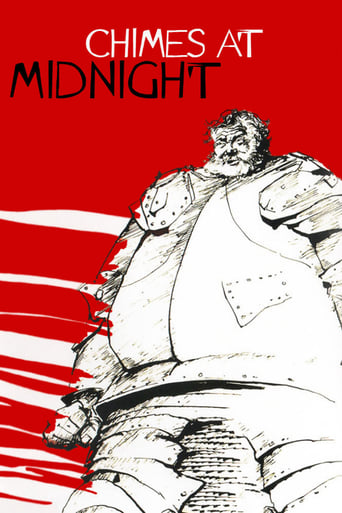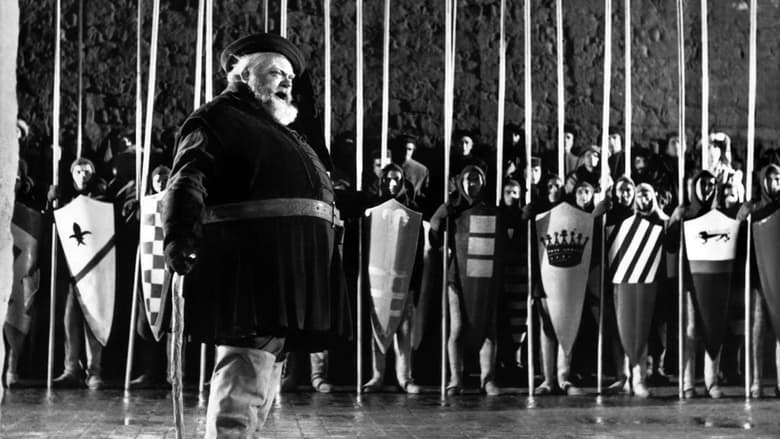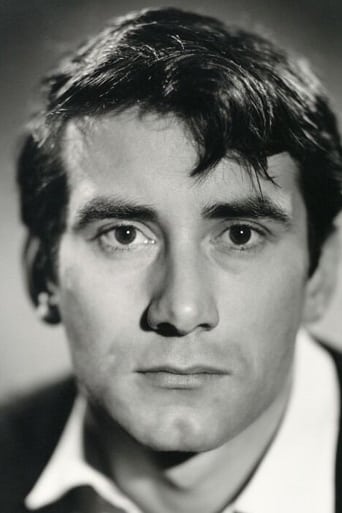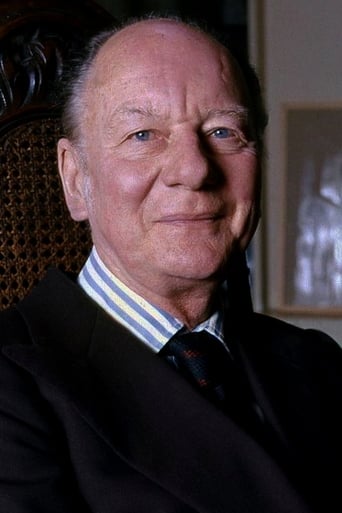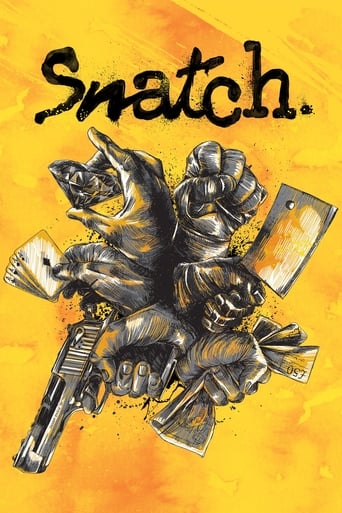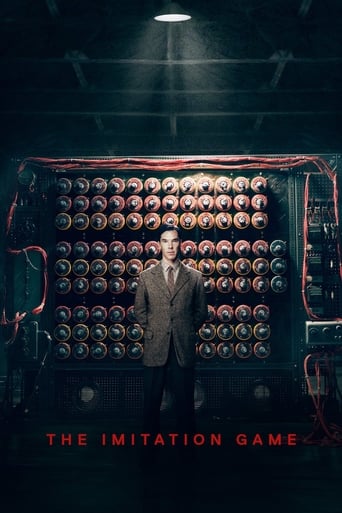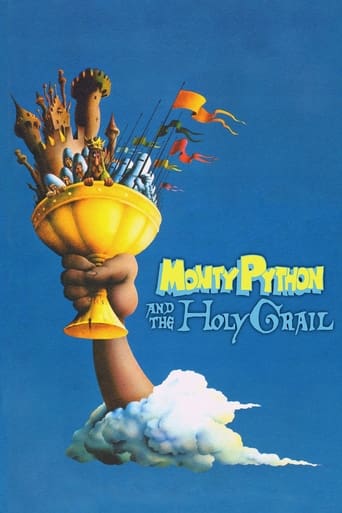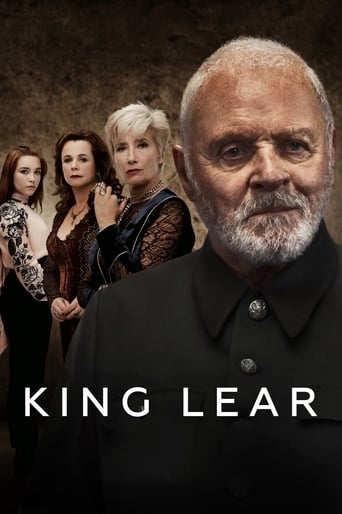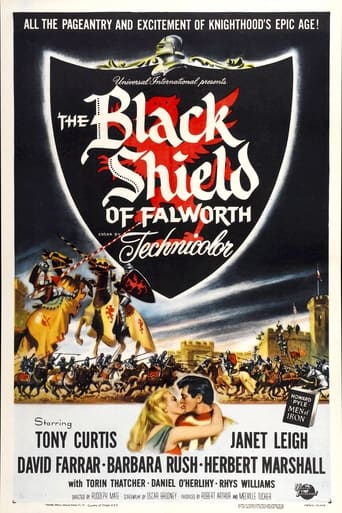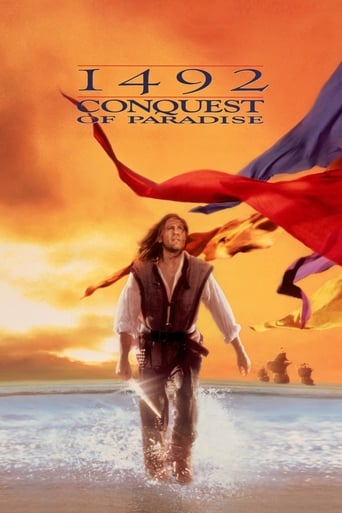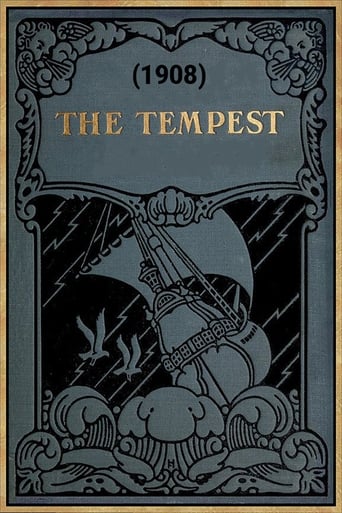Chimes at Midnight (1965)
Henry IV usurps the English throne, sets in motion the factious War of the Roses and now faces a rebellion led by Northumberland scion Hotspur. Henry's heir, Prince Hal, is a ne'er-do-well carouser who drinks and causes mischief with his low-class friends, especially his rotund father figure, John Falstaff. To redeem his title, Hal may have to choose between allegiance to his real father and loyalty to his friend.
Watch Trailer
Cast


Similar titles
Reviews
Excellent but underrated film
Exactly the movie you think it is, but not the movie you want it to be.
A terrific literary drama and character piece that shows how the process of creating art can be seen differently by those doing it and those looking at it from the outside.
Watching it is like watching the spectacle of a class clown at their best: you laugh at their jokes, instigate their defiance, and "ooooh" when they get in trouble.
I won't belabor the point that you can gather from reading 40+ other reviews, so I will offer a few short words on the theme of the movie, as well as caveat, for watching Orson Welles' Chimes at Midnight.The film overall deals with that time-honored notion noted by St. Paul "When I was a child, I used to talk like a child, and see things as a child does, and think like a child; but now that I have become an adult, I have finished with all childish ways." Prince Hal is growing up and becoming an adult, and as such must soon leave his childish pranks and habits behind. His friend, Falstaff, is that childhood friend (paradoxically old in age, as if he never grew up himself). Boisterous, drunk, and a glutton, the blowhard gleefully recounts all the good times that he, Prince Hal, and their other misfits used to have, doing the things that children and adolescents do, like being a nuisance, harassing others, and goofing off. It is the type of life Falstaff still leads and he is quite happy with it. Prince Hal is, too, until the weight of responsibility is slowly thrust upon him thanks to his sick father. As the stakes are raised, he slowly loses the time and desire to be a silly young boy and now must be a man.Falstaff is oblivious to this development all the way until the end, thinking that these are just momentary phases before the parties can begin anew. He is ever hopeful that the Prince and the world will see things his way. He fails to see how the world moves past a fat, blundering fool. His love for the prince, for the girls of the bawdy bar, for his compatriots is, while sometimes humorous and self-serving, he nonetheless wishes no real ill on anyone and merely lives for fun and pleasure. In his old age, he has decided that being an adult (if he ever was one) is not something worth putting time and energy in to. He is unimportant and carefree enough to have that luxury; however, his closest friends cannot shirk away from their duties as men, and thus Falstaff fails to realize how he is left behind.All of this is turned into a moving portrait. We realize that Falstaff is wrong, and that sometimes the world calls for more than just joking around, goofing off and indulging one's self. But we sympathize with him, because we can see a gentle and loving person underneath the bluster and idiocy - and perhaps we ourselves wish the world were more "childish" and carefree. At the climactic battle scene (were Welles' camera work makes a hundred men or less look like a thousand), men grind and pulverize each other into hamburger meat - but Falstaff never manages to hurt a single soul. Perhaps there is some good in being childish! For those wishing to watch the movie, the Criterion package is an excellent one. The customary supplemental materials are fascinating, and the picture brings out Welles' cinematography. Criterion and co. did there best with the sound, and the sound is the biggest single issue with which you will struggle with (or at least I did) with Chimes. Even with work done on it, the sound levels are inconsistent, especially with actors' lines. Sometimes whole scenes will go by with what sounds like dubbers mumbling their lines, straining your ears and making you crank the volume up on your TV. Then all of the sudden someone will speak loudly and clearly, blowing you back with the force of it and making you quickly turn the volume back down... only for the process to repeat again. I have not done this yet, but I would probably recommend watching with subtitles on to help alleviate the issue of figuring out what some of the whispers and mumbles are supposed to be. Not an elegant solution, but with Welles' later work, you will have to deal with some technical issue or another.Don't let the above turn you off from seeing this beautiful, and moving film. It is a worthy adaptation and remix of Shakespeare and one of Welles' greatest movies.
It's not exactly daring to declare Citizen Kane to be Orson Welles's most groundbreaking and influential movie. That does not, however, mean that Kane is necessarily Welles's most entertaining and satisfying film. I have long held the latter to be Touch of Evil, but now that I have seen the long unavailable Chimes at Midnight, I might have to reconsider. Welles is indisputably the primary creative force behind Kane and Touch. With Chimes he had some pretty decent source material with which to start. The script is composed of scenes from Shakespeare's Merry Wives of Windsor, Henry IV Parts 1 & 2, and Henry V reconfigured to make Falstaff, Shakespeare's most famous supporting character, into the primary figure of the narrative. But this creates an entirely original story with entirely different themes and politics than those of the original works. This is one of the most contemporary feeling Shakespeare films ever made, even though it in no way departs from the plays' medieval settings. Indeed, the magnificent art direction subtly but powerfully conveys a world of spectacular barbarity where even the most sympathetic characters wander an earth littered with tortured, mutilated, broken bodies displaying not a trace of emotion. There is so much understandable attention paid to Welles the director that we sometimes overlook what a truly gifted actor the man was. And in that regard, this is his masterpiece, the performance of his life . His Falstaff is a soulful hedonist whose gift for gab can make most anyone forgive his rather parasitic nature. This is not the likable, but sometimes violent criminal the character is sometimes imagined to be, but a man who wants his stories to amuse and make one forget or overlook the characters intense vulnerability, and indeed cowardice. Welles always conveys vulnerability, even in his least sympathetic characters, but this is a spectacularly moving performance in which the old Welles uses his physical awkwardness, his jarring girth, to manifest a man who tries to entertain a world he cannot change, or even nimbly navigate. Falstaff is a moving character as written in Shakespeare's three plays that feature Henry V. Yet those plays are ultimately, necessarily, celebrations of feudal power and conquest. The young Henry enjoys the rapscalrony of Falstaff's company, but when the time comes to assume power, he dutifully puts aside childish things and starts a war of conquest for the glory of the nation, which is to say the Crown. Falstaff is, in these plays, that which must be repudiated for the sake of glory. Nothing in this twentieth century work makes feudal power seem glorious. When Henry turns his back on Falstaff it seems the victory of conformity over comradery, of obligation over empathy. It goes without saying that the film is visually sumptuous, characterized by the brilliant deep-focus and chiaroscuro lighting that are Welles's visual hall mark. But one scene stands out as one of the aesthetically greatest of his career as a director. Falstaff, ostensibly a knight, is fitted with a ludicrous, almost tank sized suit of armor to try to contain his rotund form. This machine of awkwardness is plunged into a brutal battle, equipped only for impotence. The image almost had to have been inspired by Max Ernst's near identical 1921 painting, The Elephant Celebes. But where as Ernst's round robot is terrifying, Welles's knight is the clown prince of all that is human.
This movie, which is very nicely filmed, very cinematic, as we'd expect from it's director, has one very big problem with it. Falstaff, in the Shakespeare plays, is no hero. In the plays he symbolizes everything wrong with England. He is an adulterous, corrupt, criminal, even stooping so low as to become a common thief, he is a congenital liar and manipulator. In the plays, while we have a certain amount of fun with him for a while, in the end he is acknowledged for what he is: evil. The director of this film had a different idea, he had a strange romantic vision of the age of chivalry, and felt that this was somehow embodied in the character of Falstaff. Film buffs can read the interviews. This interpretation is at logger-heads with Shakespeare's Fallstaff. The director, of course, felt that you can play Shakespeare any number of different ways, and all will be well and good. But you can't turn the criminal, the embodiment of evil, into the good-guy. That's a little too "Hollywood", in the worst possible way. Personally, I don't feel any sympathy for Hal's rejection of Falstaff. He got what was coming to him. The Prince grew up, developed a sense of moral character when it was needed of him. He rose to the occasion and met that which was demanded of him for the good of his country. The sad coward Falstaff could never change. The director, self-confessedly, is on Falstaffs side. Makes you wonder about his view of life in general and understanding of Shakespeare in particular.Very disappointing.
I was trying to think of what adjectives I could use to describe this absolute masterpiece - by far the best of Welles' movies - and perhaps the word that suits it best is "haunting". The movie has a very odd quality from the first minutes, it seems as though we are looking through a window INTO this very time of 15th century England, and watching real people go through ordinary and extraordinary dramas and foibles. The sense is one of overwhelming nostalgia for a golden past, forever lost, and in kings and heroes and rascals who are far larger than life.The performances are simply remarkable, from John Gielgud's guilt ridden, anguished king who grieves that his past sins have caught up with him in the person of his unruly son, Keith Baxter as that son, Prince Hal - good looking and full of mischief - and yet coldly imperious when the time comes to reject a great friend and mentor. Norman Rodway as Hotspur, captures the very essence of that epic warrior...and Orson Welles give his greatest performance as that epitome of hedonistic innocence....Sir John Falstaff.I love this movie and could watch it every week. The production, despite the flaws of sound (which actually ADD to the sense of reality to me), is amazing - the sets are perfectly atmospheric - even touches like the flourishes of trumpets that punctuate Harry Percy's rant, are simply...perfect.Perhaps what impresses me most here, is that like Olivier, Welles had the rare ability to CONTROL the plays and manage them, rather than be managed BY them. It's hard to explain, but these men became like co- creators with Shakespeare. I cannot recommend this film highly enough. If you see only ONE play of Shakespeare on film, let it be this one. It will show you what a genius can do with the material of another genius.

